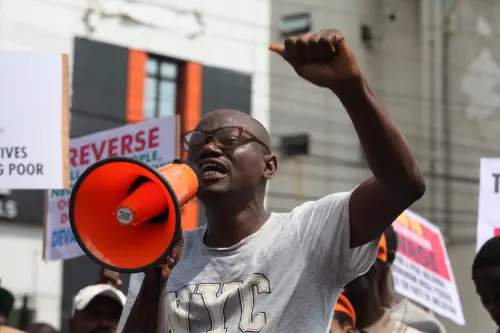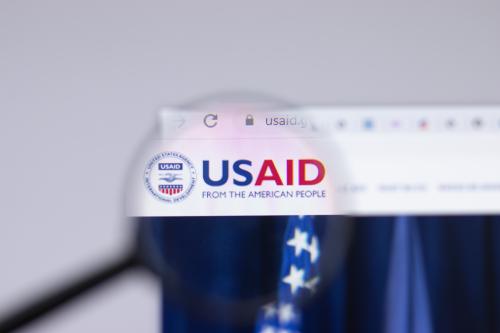Kenyan opposition disputes election results as Angola prepares for next week’s elections
Last Friday, Kenya’s electoral commission announced the official results of the August 8 elections. Incumbent President Uhuru Kenyatta was re-elected with 54.3 percent of the votes. Opposition leader Raila Odinga received 44.7 percent of the vote. After the announcement and amid claims by the opposition of rigging, demonstrations erupted, increasing the deaths related to post-electoral violence to 24. The opposition party has now vowed to dispute the election results in front of the country’s Supreme Court. Said party unsuccessfully challenged the 2013 election results in front of the Supreme Court.
Next week, on August 23, 9.3 million registered voters will head to the poll to cast their votes in Angola’s parliamentary elections. The head of the winning party will automatically become the country’s president. President Jose Eduardo de Santos, Angola’s second president, will be stepping down after ruling the country for 37 years. During this election cycle, Defense Minister João Lourenço heads the ruling party, the People’s Movement for the Liberation of Angola. Ahead of the elections, the country’s main opposition party, National Union for the Total Independence of Angola, has raised concerns over the overall fairness of the elections, accusing the National Electoral Commission of bias.
In other political news, Zambia’s opposition leader has been freed after his April arrest over treason charges. His arrest raised tensions in the country, prompting President Edgar Lungu to impose a state of emergency last month. The charges were dropped after Commonwealth Secretary-General Patricia Scotland, who recently visited the country, negotiated a deal.
Namibian Central Bank cuts interest rates; credit rating downgraded by Moody’s
On Wednesday, August 16, Namibia’s central bank cut its repo rates by 25 basis points to 6.75 percent. The rate cut comes on the back of slowing inflation, which has fallen from 8.2 percent in January to 5.4 percent in July. The economy has been contracting for the last four quarters and the central bank expects GDP to grow by only 2 percent in 2017. The rate cut is expected to lower lending rates and spur credit growth, which stood at 8.5 percent for the first six months of 2017 compared to 12.5 percent in the same period last year.
Last Friday, the credit rating agency Moody’s Investors Service downgraded Namibia’s long-term senior unsecured bonds. Moody’s cut its rating from Baa3 to Ba1, a significant event that shifts Namibia’s debt from investment to non-investment grade. In an accompanying research note, Moody’s noted three major factors, the erosion of Namibia’s fiscal strength, limited institutional capacity to manage shocks, and the risk of renewed government liquidity pressures. Moody’s highlighted the rise in public debt from 26 percent of GDP to 42 percent since the rating was assigned in 2011. The downgrade has raised serious concern from the Namibian government regarding the process, with Finance Minister Calle Schlettwein noting that Moody’s rating review “could have benefited from the mid-year budget review planned for October 2017.”
Sierra Leone enters week of mourning for mudslide victims
In the midst of an unusually heavy rainy season in Sierra Leone, the capital of Freetown is suffering from flash flooding and mudslides, which have devastated certain parts of the city. After three days of torrential downpours, a hillside collapsed on Monday, August 14, triggering a mudslide in the mountain town of Regent. While emergency personnel are still searching through the rubble for approximately 600 people who remain missing, the mudslide is expected to have killed more than 400 people and left 3,000 people homeless. A burial of 320 people took place on Tuesday at the Ebola cemetery in Waterloo, on the outskirts of Freetown. On Wednesday, the government announced that a week of mourning would commence.
At an emotional press conference on Tuesday, President Ernest Bai Koroma stated that “entire communities have been wiped out,” and “we need urgent support now.” Humanitarian organizations have expressed concerns that waterborne illnesses such as cholera or typhoid may break out, given the extent of contaminated floodwaters running through and pooling in the streets. As rain continues to fall on Freetown, the government and its humanitarian partners are mapping the hills in mountain neighborhoods to assess the risk of further landslides and may recommend evacuation for at-risk communities.
The Brookings Institution is committed to quality, independence, and impact.
We are supported by a diverse array of funders. In line with our values and policies, each Brookings publication represents the sole views of its author(s).





Commentary
Africa in the news: Kenya’s opposition disputes election results, Namibia cuts interest rates, and Sierra Leone mourns mudslide victims
August 18, 2017